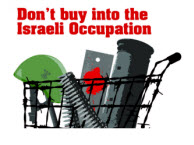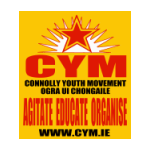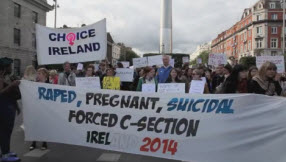Contents:
1. Israel: outpost of imperialism
The self-proclaimed “international community” is much preoccupied lately with international law and human rights, and is busy devising and implementing economic sanctions against Russia, Iran, and Syria, among others, allegedly for their real or supposed transgressions.
2. Demand grows for a living wage
The economic crisis that went global after Lehman Brothers collapsed in 2008 is not over, but the free-market system appears, for the time being at least, to have stabilised. Output is increasing while unemployment is falling in Britain, the United States, and even Spain.
3. They simply don’t care
Western governments and media are using the shooting down of Malaysian Airlines flight MH170, with 295 people on board, as a further pretext for pushing for wider sanctions against Russia, which may push the world closer to a war on the European continent.
4. Time for women to get back to activism
Speaking at a seminar of communist and workers’ parties on the role of communists in the struggle for the parity and emancipation of women in Brussels in March 2010, Lynda Walker, national chairperson of the Communist Party of Ireland, said: “In the struggle for parity, for women’s emancipation and for socialism we understand the reactionary role that the European Union is playing and the role of British imperialism.
5. An independent political programme for the trade union movement and for workers
A declaration by the Trade Union Left Forum: Where is the ambition? Jack O’Connor has said on a number of occasions that the “left” lacks ambition and courage. This is certainly true of the official trade union movement. It lacks ambition, courage, and vision.
6. Shared slaughter in an ignoble cause
We are surrounded on all sides by a cacophony of noise about events, media features and academic feastings to celebrate the beginning of the war of 1914–18. “Co-ordinated” is the adjective that occurs to sceptical minds.
7. The First World War and a century of slaughter
Statement by the Communist Party of Ireland The 31st of July is the centenary of the outbreak of the First World War, which resulted in the slaughter of more than nine million people, with millions more wounded and left physically and emotionally traumatised. It was the first “industrial” war, fought on a scale unprecedented in history.
8. A song for Palestine
The Lives of Strangers Eoghan O’Neill
9. Venezuela has more democracy than the United States
Venezuela is one of the countries that most appreciate their democracy. This is the conclusion of the Chilean NGO “Latinobarómetro” following its study of democratic evaluation in the Latin America populations.
10. Spain’s grass-roots revolution Protest goes political!
The huge anti-austerity demonstration by “indignados” (the indignant) in Madrid on 15 May 2011 generated mass protests in all the main Spanish cities, involving millions of workers.
11. The law of unintended consequences
In bourgeois economics, numerous rules and laws have developed to obscure the class nature of society and the existence of the class struggle. Adam Smith’s “invisible hand” is also the law of unintended consequences.
12. Liam and Tom O’Flaherty Summer School
The Liam and Tom O’Flaherty Society has announced its second Summer School, following last year’s hugely successful inauguration. It will be held once again in Inis Mór (Árainn), the birthplace of these two great writers, on the last weekend in August, Saturday and Sunday the 30th and 31st.
13. Return of the Brute
This is perhaps a good time to look at the first Irish anti-war novel, Liam O’Flaherty’s Return of the Brute. When the First World War ended, in 1918, it seemed unimaginable that there could ever be such slaughter again. The arts in particular reflected the sense of exploded bodies and the insanity, a world that had spiralled out of control.
Read Post →






















